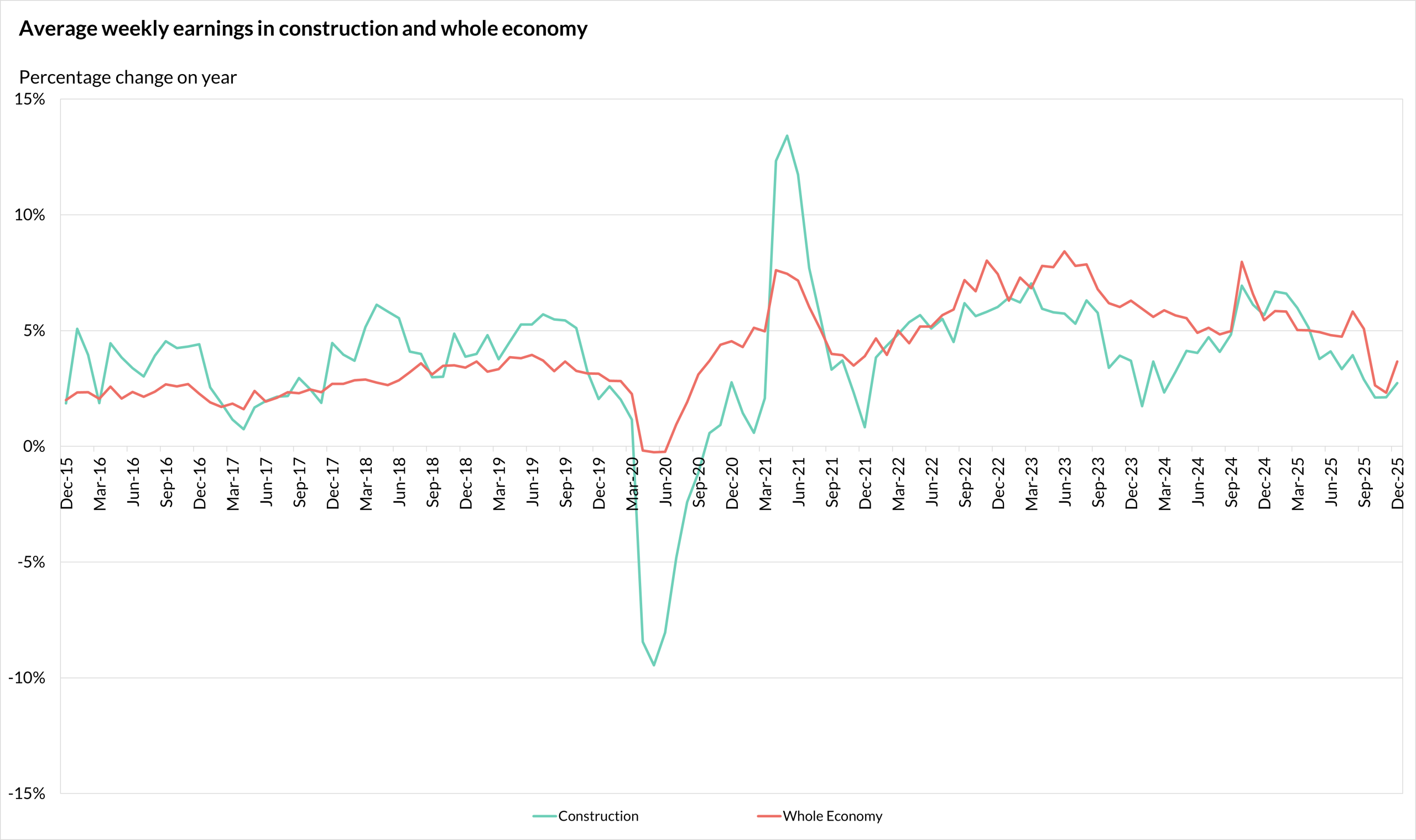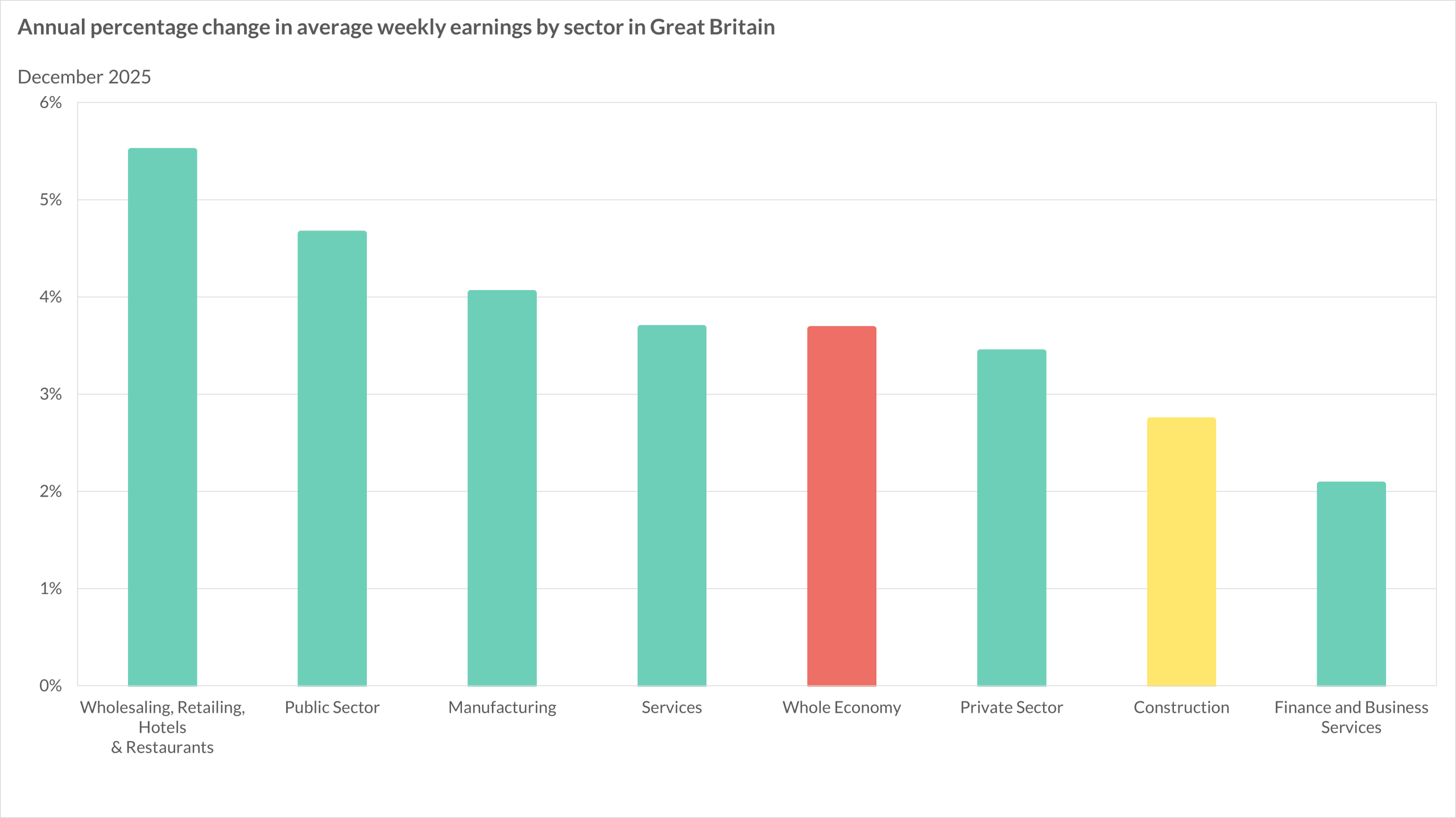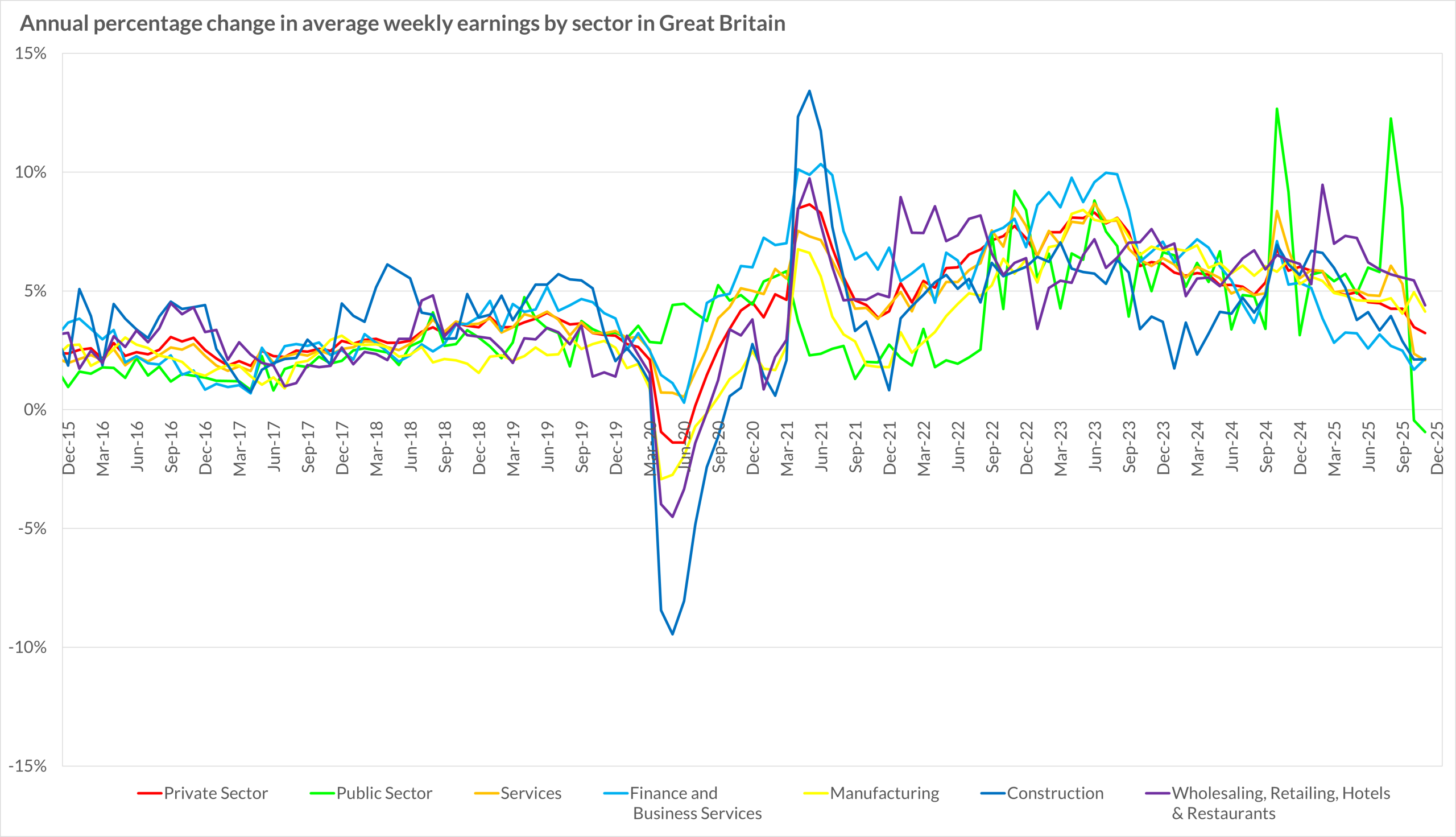The Building Cost Information Service (BCIS) is the leading provider of cost and carbon data to the UK built environment. Over 4,000 subscribing consultants, clients and contractors use BCIS products to control costs, manage budgets, mitigate risk and improve project performance.
Published: 18/02/2026
The Office for National Statistics (ONS) publishes monthly updates on average weekly earnings across the whole economy and by industry and sector in Great Britain. This commentary relates to ONS’s EARN02 and EARN03 datasets, which cover non-seasonally adjusted earnings, excluding bonuses and including arrears.
Construction wage growth trailed wider economy at year’s end
Construction wages, as measured by index K5AH in the ONS’s Average Weekly Earnings dataset(1), increased by 2.7% in the year to December 2025. This was an increase on the 2.1% rise seen in the 12 months to November 2025. On the month, there was a 0.8% decrease in the construction industry’s average weekly earnings.
Across the whole economy, the average increase in earnings in the year to December 2025 was 3.7%, up from 2.3% in November, according to index KA5H(2).
Dr David Crosthwaite, chief economist at BCIS, said: ‘Annual construction wage growth trailed the wider economy for three-quarters of 2025, first falling behind in May. However, the continued contraction of the workforce and planned increases to national wage thresholds in April could see wage growth pick up in the coming months, particularly if there is an uptick in demand.
‘A rise in basic pay often has a ripple effect where the wages of more skilled or experienced workers increase to maintain parity. If demand picks up, existing skills shortages could give workers more bargaining power which may lead to an uptick in labour costs and wage growth.’
Annual growth in earnings in construction was lower than the whole economy average for the eighth consecutive month in December 2025.
Source: ONS – Construction (K5AH) and Whole economy (KA5H), non-seasonally adjusted average weekly earnings, excluding bonuses, including arrears
Comparing pay at a sector level (with index K56S), construction workers saw the second lowest annual increase in average weekly earnings across all sectors.
The greatest annual wage growth was recorded in the wholesaling, retailing, hotels and restaurants sector with a 5.5% rise.
Source: ONS – EARN02: Non-seasonally adjusted Average Weekly Earnings, excluding bonuses, including arrears, at sector level.
The ONS data show that the construction sector has experienced the most extreme fluctuations in earnings movement in recent years, from a 9.5% annual decrease in May 2020 to a 13.4% increase year-on-year in May 2021.
Source: ONS – EARN02: Non-seasonally adjusted Average Weekly Earnings, excluding bonuses, including arrears, at sector level.
BCIS produces five-year forecasts of the Average Weekly Earnings construction (K5AH) and whole economy (KA5H) time series for subscribers of BCIS OpX.
To keep up to date with the latest industry news and insights from BCIS, register for our newsletter here.


